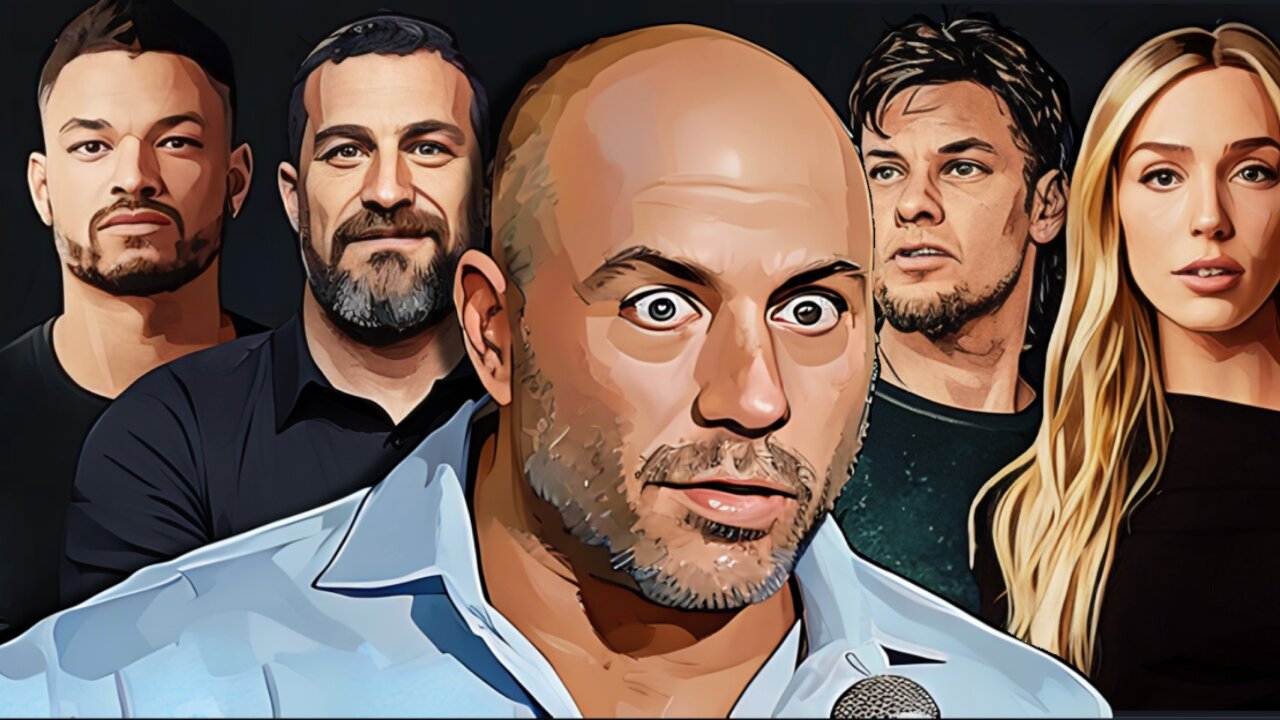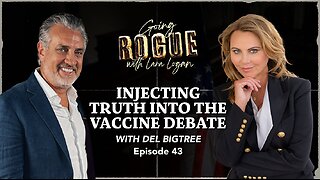Premium Only Content

Welcome to the Sponsorverse: The Cult of Sponsored Speech
The podcast industry has lost its soul. Dirty tactics, rage-bait guests, and questionable product promotions. With over 4.25 million podcasts available, the market is overcrowded and only 0.27% of podcasts succeed. Top podcasters often resort to divisive topics and ineffective health product promotions to maintain engagement. As podcasting shifts towards monetization over valuable content, 99% of podcasters struggle to survive. This video explores the rise of controversial tactics, celebrity podcast failures, podcast listener frustration, and the ongoing podcast industry crisis.
The podcasting landscape is increasingly saturated with competition, overwhelming listeners and creators alike. As podcast monetization grows, with sponsors and product promotions driving the focus, many shows find it difficult to generate consistent revenue. While the top 1% dominate, podcasts in the lower market struggle to thrive, with only a small fraction earning full-time income. The rise of rage-baiting tactics, controversial guests, and unlicensed music use marks a shift in how podcasts operate. Join us as we dive into how the podcast industry has become more about profit than providing valuable information.
00:00 The Overcrowded Podcast Market
01:48 The Time Commitment Problem
02:38 Why Guest Selection is Crucial
03:25 The Problem of Recycled Podcast Guests
04:22 The Science Behind Clickbait Thumbnails
04:42 Controversy and Rage-Baiting for Views
05:04 How Podcast Monetization Works
05:25 Steven Bartlett’s Huel Profit Scheme
05:49 Shady Podcast Coupon Tactics
06:01 Andrew Huberman AG1 Controversy
06:49 Annoying Podcast Ads
07:31 The Harsh Reality For 99% of Podcasts
08:08 Celebrity Podcasts Are Struggling
08:28 The Podcast Recession
The podcasting landscape is increasingly saturated with competition, overwhelming listeners and creators alike. As podcast monetization grows, with sponsors and product promotions driving the focus, many shows find it difficult to generate consistent revenue. While the top 1% dominate, podcasts in the lower market struggle to thrive, with only a small fraction earning full-time income. The rise of rage-baiting tactics, controversial guests, and unlicensed music use marks a shift in how podcasts operate. Join us as we dive into how the podcast industry has become more about profit than providing valuable information.
00:00 The Overcrowded Podcast Market
01:48 The Time Commitment Problem
02:38 Why Guest Selection is Crucial
03:25 The Problem of Recycled Podcast Guests
04:22 The Science Behind Clickbait Thumbnails
04:42 Controversy and Rage-Baiting for Views
05:04 How Podcast Monetization Works
05:25 Steven Bartlett’s Huel Profit Scheme
05:49 Shady Podcast Coupon Tactics
06:01 Andrew Huberman AG1 Controversy
06:49 Annoying Podcast Ads
07:31 The Harsh Reality For 99% of Podcasts
08:08 Celebrity Podcasts Are Struggling
08:28 The Podcast Recession
-
 7:32
7:32
Mini Money Docs™
4 months agoWhat Killed Quiznos? (It Wasn’t Subway)
16 -
 LIVE
LIVE
Dr Disrespect
2 hours ago🔴LIVE - DR DISRESPECT - ARC RAIDERS - THE VENATOR SLAYER
1,705 watching -
 LIVE
LIVE
MattMorseTV
1 hour ago🔴Schumer’s FAILURE sparks Democrat MUTINY.🔴
1,196 watching -
 LIVE
LIVE
Sean Unpaved
1 hour agoFernando Mendoza Leads Indiana To Comeback WIN vs. Penn State! | UNPAVED
148 watching -
 1:40:57
1:40:57
Lara Logan
2 hours agoINJECTING TRUTH INTO THE VACCINE DEBATE with Del Bigtree | Ep 43 | Going Rogue with Lara Logan
4611 -
 LIVE
LIVE
Side Scrollers Podcast
2 hours agoCraig PISSES Off The Internet + India/YouTuber CONTROVERSY + More | Side Scrollers
584 watching -
 1:12:08
1:12:08
Steven Crowder
4 hours agoDeport All Illegals | Change My Mind
237K490 -

Viss
3 hours ago🔴LIVE - First Day on Arc Raiders - I Got Married!
9391 -
 1:11:35
1:11:35
The Rubin Report
2 hours agoWatch Bill O’Reilly Destroy Bill Maher’s Narrative w/ Facts in Under 1 Minute
18.6K13 -
 LIVE
LIVE
The Mel K Show
2 hours agoMORNINGS WITH MEL K - The Dam is About to Break: Bring on the Indictments! 11-10-25
1,171 watching